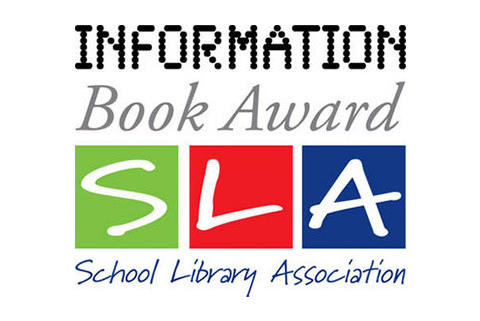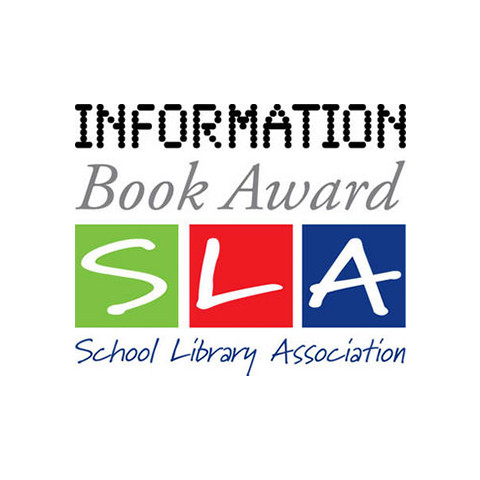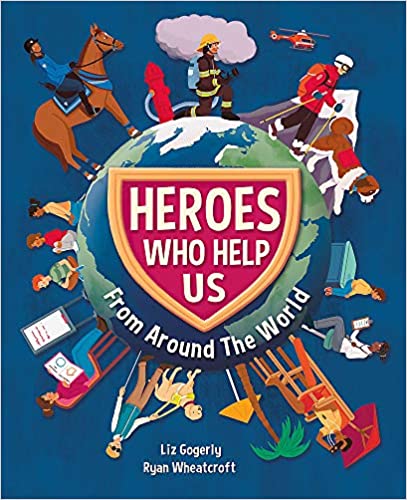Judging the 2020 School Library Association Information Book Award
Charlotte Taylor-Smith is the senior librarian at
Colston’s School in Bristol. This year she joined the panel of judges for the
SLA Information Book Award and accepted our invitation to write about her experience
to coincide with the announcement of the award winners.
As I recommend books for all ages from 3 years old to
just-about-to retire members of staff, witnessing that moment when a child, or
indeed an adult feels that penny drop has been one of the most fulfilling aspects
of my 16 years of School Librarianship. It could be that that moment of
understanding results from a character feeling and articulating a complex
emotion that a reader has not been able to do for themselves, or when a
difficult concept that has previously alluded them is comprehended. Sometimes
it happens later, after a book has been read and mulled over – but helping it
to happen by putting the books in readers’ hands is central to my role.
Book award long and shortlists have always been a beneficial
method of assisting in stock selection as they highlight what others believe to
be ‘key’ books in their certain selection criteria. Hence, when the School Library Association
advertised for a judge to join their Information Book Award panel last year, I jumped
at the chance to be involved.
The magnitude of what this meant was realised physically
when 6 boxes containing 170 books arrived at my
home in February; all to be read, considered, notes made and sorted into many
piles on my dining room table (ok, the floor as well!).
Non-fiction books constitute a healthy percentage of the stock on my shelves, but oh how they have changed over the years! Most fiction books can age gracefully, given the odd change of a word’s meaning over a generation, or a technology that firmly grounds the story’s action into a certain time period (remember Myspace anyone?). Non-fiction books, however, can become out of date not always due to their facts, but also because of their use of illustrations or photos being dated, non-representative or just unattractive to the eyes of readers who are used to gleaning their facts from websites or magazines. (Check out the selection at the end of the FCBG’s National Non-fiction November reading list for some ideas). The books submitted for the IBA were numerous but crucially they had to appeal in their presentation to the age group they were aimed at – and this is where reader, librarian and publisher or author differed at times.
There were titles that I found fascinating and I learnt
much from, but I knew they would not be picked up and enjoyed by my school
community. There were others that were beautiful works of art that could be
pored over for hours! But without an index, or glossary, they could not have
been used as information resources with my students – they would have taken the
lesson just reading them to find the bit of information they needed and not be
able to move on with their work!
I did really enjoy discussing the titles with the fellow
judges and gaining their perspectives on books I had loved or dismissed. Each coming from a different background,
although of course there are similarities between us, it was so invigorating to
be challenged in my thinking and made to really articulate my judgments. With
some titles I needed to double down and fight, while with other titles the
discussion and reflection resulted in me changing my mind to agree with the
other judges.
Obviously, the Children’s Choice had to run differently
this year; with schools in lockdown and many librarians furloughed, the usual
business of running the shadowing groups with students became very
difficult. The SLA produced some
fabulous activities, which can still be used with the books to help students explore
more (https://www.sla.org.uk/iba-2020)
even now the vote has been cast and to keep the non-fiction focus going do keep
an eye on the FCBG’s National Non-Fiction November, as there are some excellent
ideas and suggestions for books and activities.
So, despite the frustrations of not being able to share
the books with students immediately, or meet my fellow judges in person I have
really enjoyed being a part of the IBA, and am really looking forward to the
delivery of next year’s titles!
This year’s winners were announced on 5th November 2020. The category winners were:
Up to 7: Heroes Who Help Us Around the World by Liz Gogerly and Ryan Wheatcroft (Franklin Watts, ISBN 9781445165677)
8 – 12: Africa, Amazing Africa by Atinuke and Mouri Feddag (Walker Books, ISBN 9781406376586)
13 – 16: Black History Matters by Robin Walker
(Franklin Watts, ISBN 9781445166896)
The overall winner was Africa, Amazing Africa.
Congratulations to all the authors, illustrators and
publishers involved.
Any opinions expressed may not truly reflect those of
the FCBG.









Leave a Reply
Want to join the discussion?Feel free to contribute!